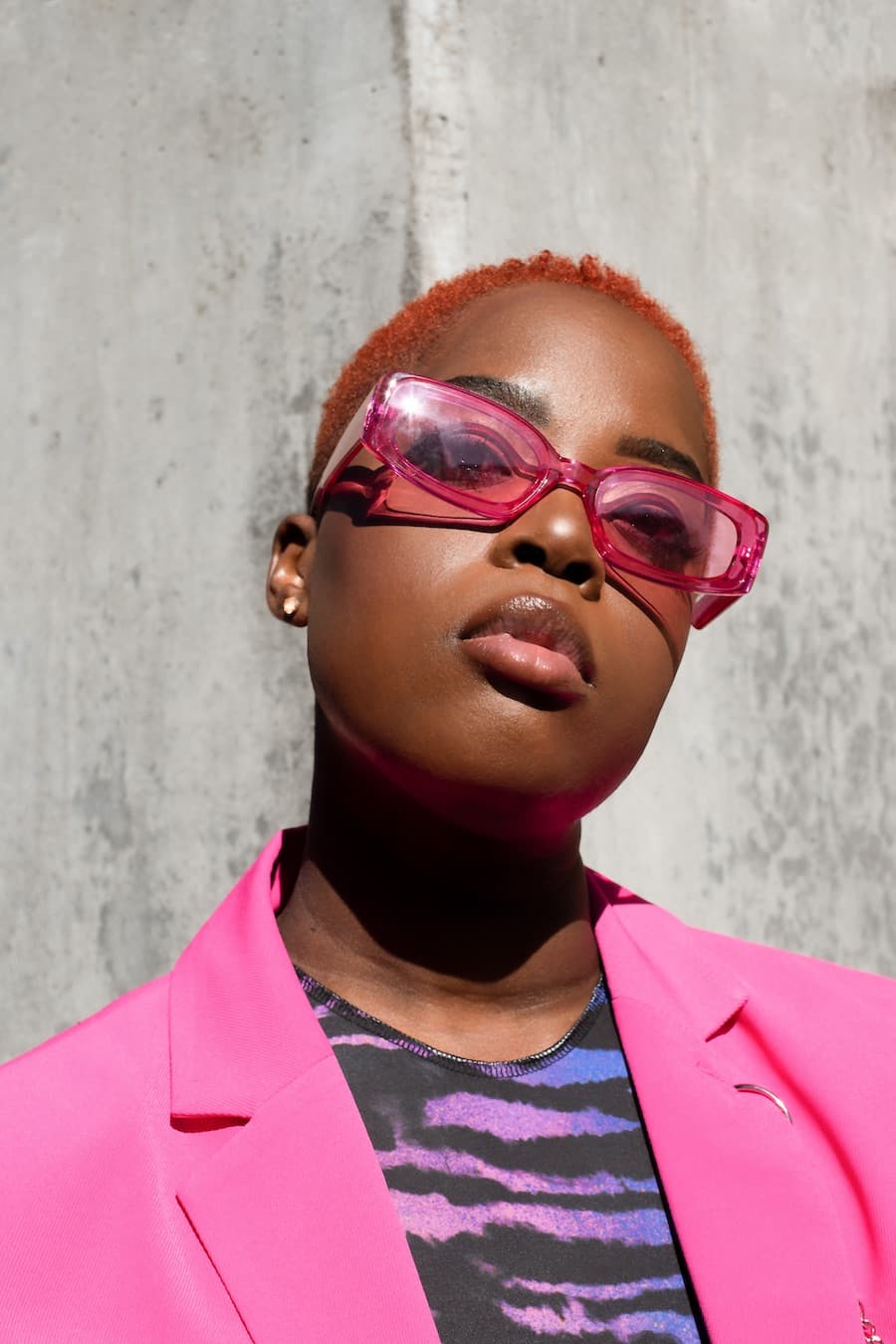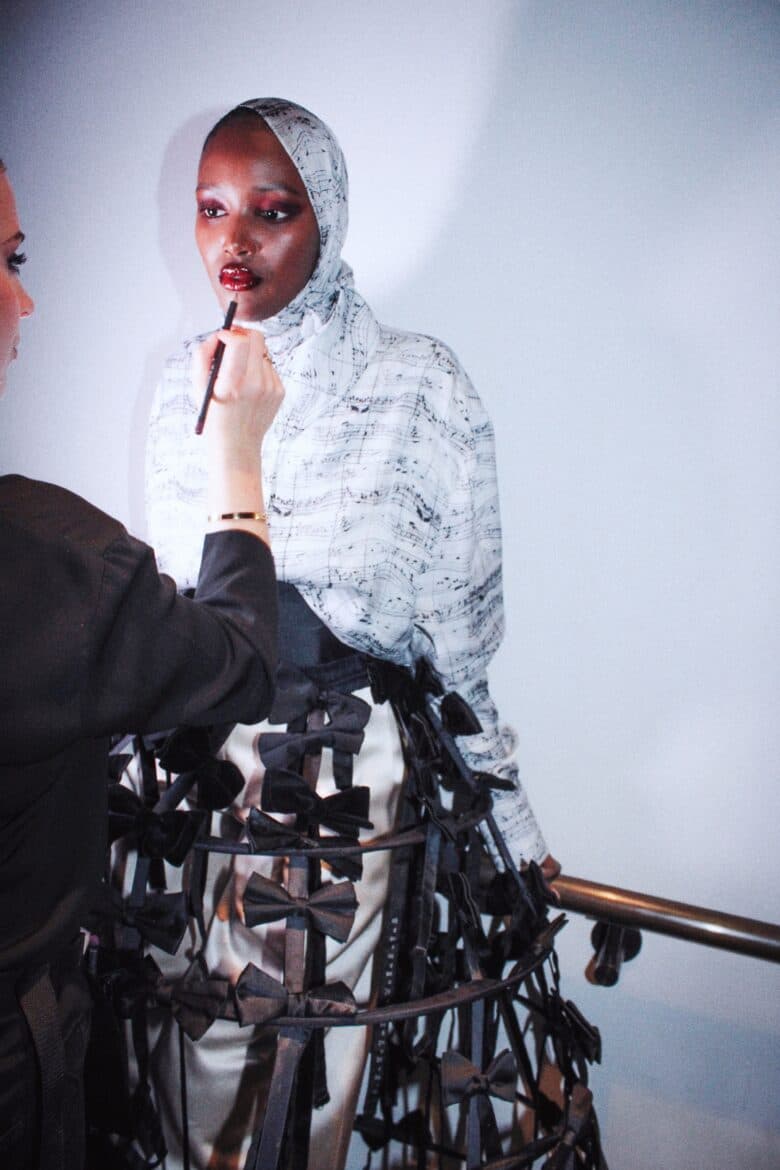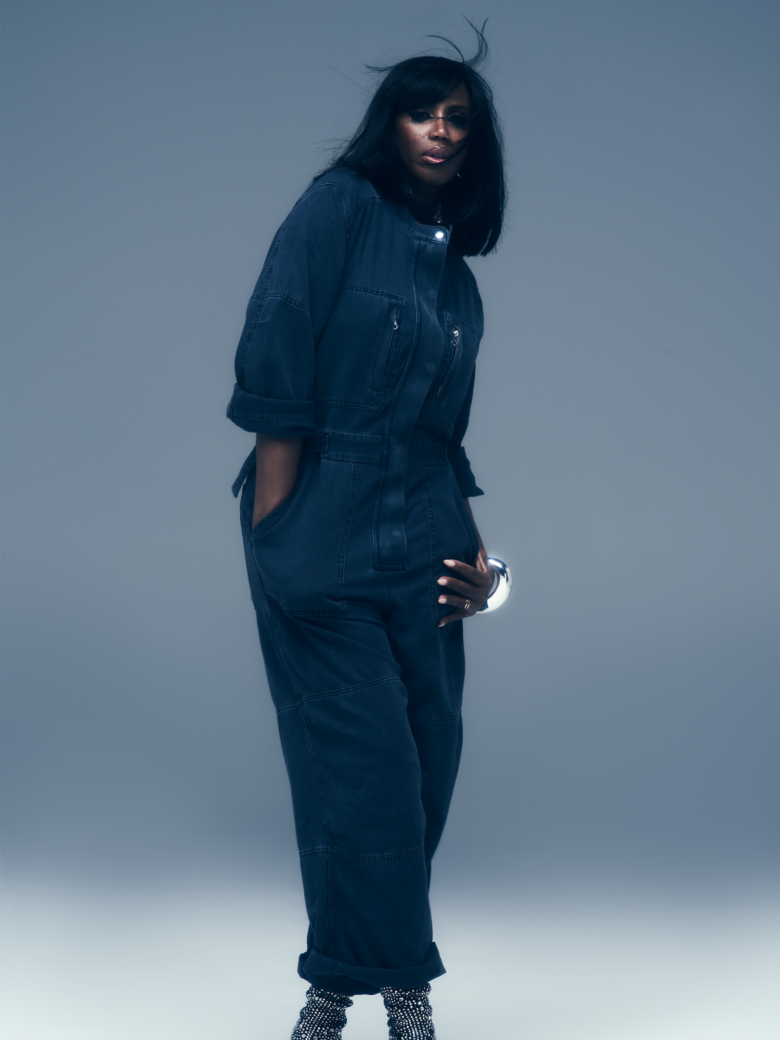Jamz Supernova On the Women Pushing Club Culture Forward
Future Bounce is my way to share my taste with the world and also to shine a spotlight on artists I feel deserve to be heard. The label acts as a launchpad to shout about artists who I’ve come across via my radio shows, travels and the electronic scenes I’m a part of. One of the main ethoses of the label was to work with women, specifically women who produce. These women blow my mind musically, but they’re also an inspiration to me through their work ethic, values and activism. It has been an absolute pleasure working with them and I want to celebrate them!
So today, on International Women’s Day, I want to highlight a few of the incredible producers on my roster.
SOLA
Sola is a London-based producer and vocalist.
Your heritage is Nigerian, which is so rich in culture, and its influence can be felt around the world, especially some of the stories which are passed down through generations. Are there any life lessons or sayings that you received growing up from the matriarchal side of your family?
Yeah completely, there’s a Yoruba saying that translates roughly to “the river that forgets its source will dry up.” It stresses the importance of looking back to those who came before us. While growing up in London, my mum always made sure we had a strong connection to our ancestry.
Up until recently, you had a solo approach to doing music, making everything yourself, recently you’ve been working with other people. If you could have a dream session, who would be in the room, dead or alive?
Andre 3000 and Missy Elliott, without a doubt. They are incredible solo artists who also truly showcase the art of collaboration. They’re also both polymaths with a special ability to seamlessly flow between genres which is something I really admire.
Your latest EP is called Mami Wata. For those who don’t know, who is Mami Wata, and how important is it for you to channel feminine spirituality into your work?
Mami Wata is a deity that’s celebrated through much of the African diaspora. She’s similar to the western idea of a mermaid and is both worshipped and feared. To some, she represents the divine power of feminine sensuality and is considered to have powers of wisdom, healing, beauty, and wealth.
To others, she is a punishing temptress. Throughout history, women have been portrayed as either weak or dangerous. Much of this roots back to the story of Adam and Eve. It was important for me to challenge these ideas by exploring the strength that exists in feminine spirituality.
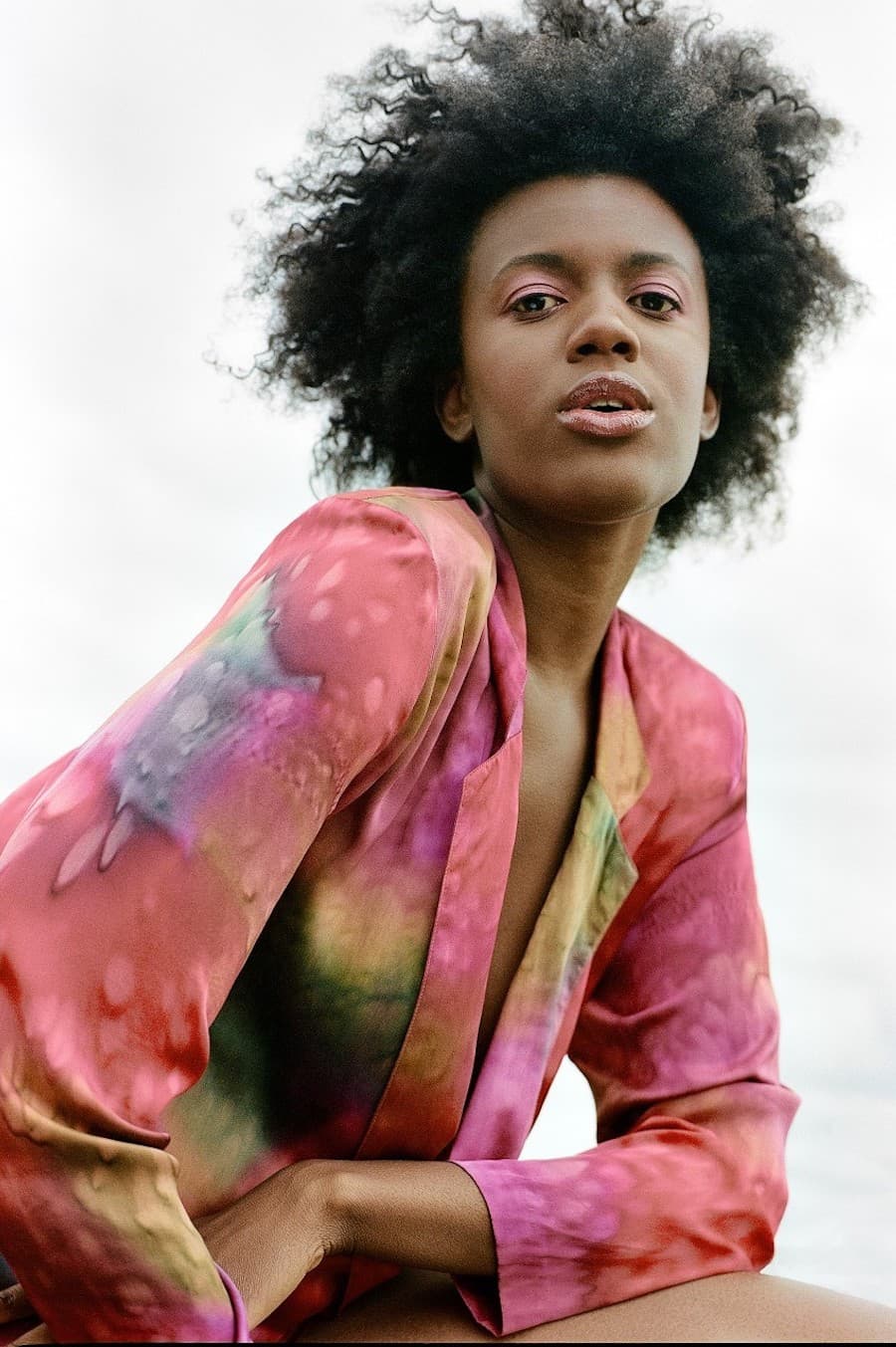
ROSE BONICA
Rose Bonica is a Cape Town-based live electronic act and producer.
You’re affiliated with some amazing communities across South Africa, such as Pussy Party, who have done incredible work on creating safe spaces for femme and queer ravers. What are some of the lessons from those spaces the rest of the clubbing world should incorporate as we look to rave more safely post-pandemic?
I feel like the biggest lesson is being aware of how much space you take up. I don’t just mean this in the sense of social distancing, although it’s just as relevant, but also with opportunities and how the systems we’ve all been involved in work. Being more aware of my own involvement in certain communities and spaces has been on my mind throughout the whole pandemic, and its something I’m actively working on.
Your recent single, “Send Forgiveness”, as been described as a self-care mantra. What does self-care mean to you & how do you apply it to your life?
In early 2020 I made some drastic changes in my social and professional life. Those changes made me reassess a lot of things in my life, including why I made music and, most importantly, how I made music. I’m still figuring out the whole self-care thing, to be honest, but I can say that “Send Forgiveness” was me taking the first step towards something more positive.
You’re from Cape Town and your studio overlooks the ocean. What’s your view and how does that impacts the music you create?
I live in a little bay called Hout Bay, surrounded by beautiful mountains that look over the blue, blue ocean. I have grown up here my whole life, which makes me sometimes forget just how privileged I am to live in so much beauty. But there are moments where I find myself just looking out towards the ocean in total awe of where I live. The view definitely grounds me and the music I make.
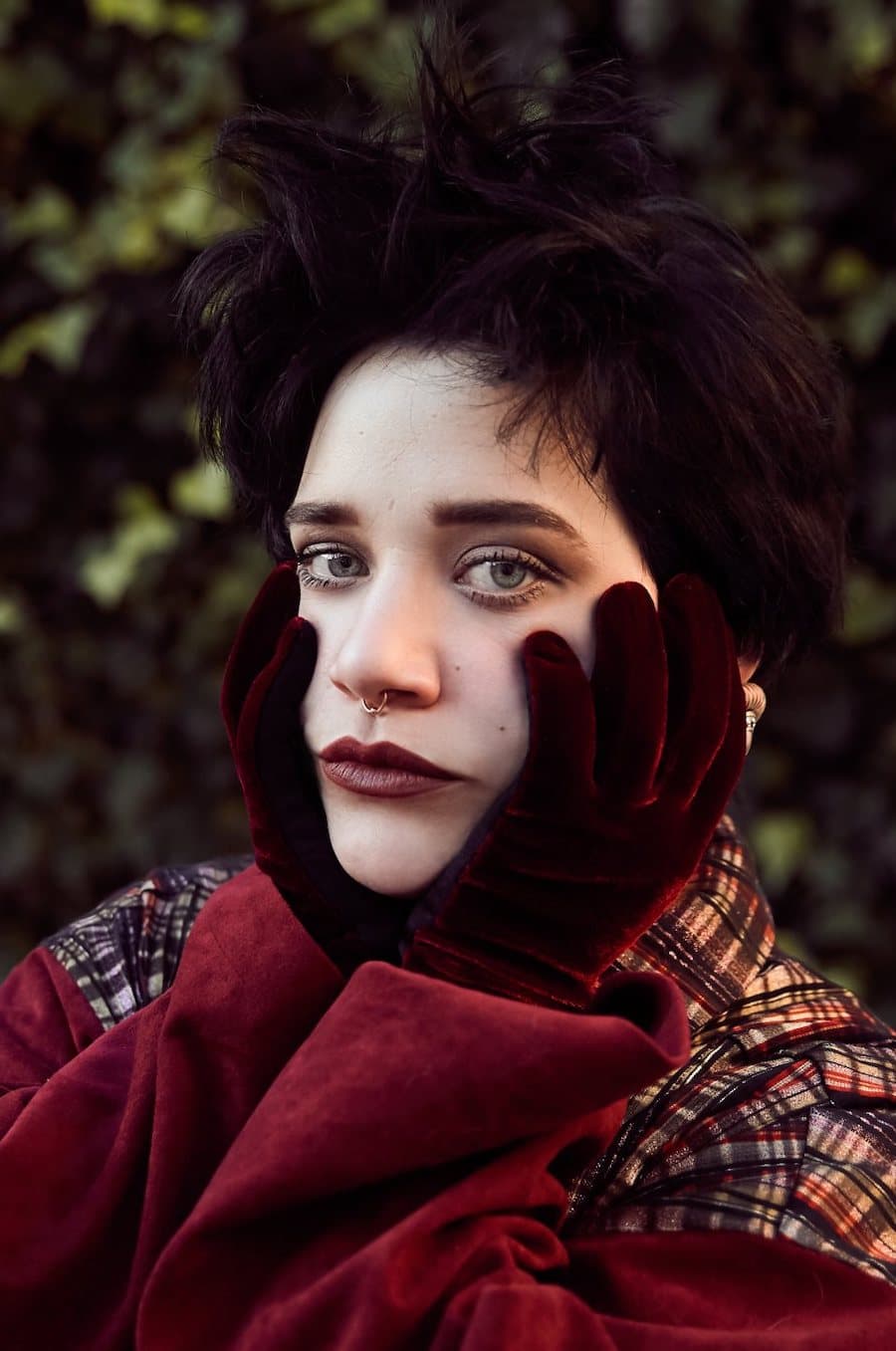
KG
KG is a London-based producer, DJ and radio host.
You’ve been at the forefront of conversations around women in music, especially producers in the electronic scene. Has there been anything recently that you’ve seen or experienced that makes you feel hopeful, positive change is happening?
I think what is encouraging is that there are more open discussions being had on inclusivity, safer spaces being established for women in music and the diversification of gig and festival line ups and panels. I believe there is still some work to do but I have noticed that these conversations are now consistently being pushed to the surface and old systems are being challenged. It does seem like the music industry is gradually working towards some sort of resolve.
You recently collaborated on a release with New Jersey producer UNIIQ3; why was that release important to you and why do you think culturally it had such a great reaction?
This release was for the culture and was monumental in so many ways. This was my first international collaboration with another amazing Black woman at the helm of her career in electronic music. To also have the project released on a dope label headed by a Black woman at the top of her game, too, [meant] major milestones [were] achieved overall, especially where visibility and representation is concerned. The entire process was organic and affirming because women in music tech on the production front have been marginalised for so long. I believe our audiences also felt the same hence the mass wave of support for the project itself.
You’re an amazing DJ, and no doubt you are missing the club! Let’s imagine it’s your first set post-pandemic. What’s the record you open your set with & what record do you close it with, and why?
I’d start off with “Love’s The Only Drug” by Ultra Nate, a soulful house roller to get us vibrating high again! I think that track would really set the mood for the rest of my set. I’d end most likely with “B2B” by myself and UNIIQU3. I would love to see how the track resonates with the crowd in real-time, it would be an epic moment!
